|
California, known for its progressive values and innovation, is increasingly becoming a battleground over the regulation of speech. The state's regulatory, political, and educational bodies are systematically encroaching on the fundamental right to free expression, attempting to manage and control speech in ways that undermine the First Amendment in the schools and among businesses.
When California sets a precedent, the implications for free speech rights across the country are profound, warranting close scrutiny and robust debate. Yet in California, recent actions reflect a shift towards control and censorship, challenging this essential liberty. Consider the legal battle involving X Corp., formerly known as Twitter. The company has been fighting against surveillance and gag orders that infringe on X’s First Amendment rights while also threatening the Fourth and Sixth Amendment rights of its users. When the government demands access to personal data stored by companies like X Corp. and then issues Non-Disclosure Orders (NDOs) to keep this secret, it coerces companies into acting as government spies, unable to speak to their users about the breaches of their privacy. This case highlights a broader pattern in California's legislative and judicial landscape. One recent law, California Bill AB 587, mandates that social media companies disclose their content moderation practices. Legal scholar Eugene Volokh has argued that this law pressures companies to engage in viewpoint discrimination, reveal their internal editorial processes, and do the government's bidding in managing speech. How would that be different from requiring newspapers to explain their editorial decisions to the government? These laws and regulations are often claimed to be justified as necessary for combating hate speech, misinformation, and harassment; however, they impose significant burdens on companies and threaten to stifle free expression. A court recently ruled against X Corp. in its attempt to block the law requiring it to disclose to the government the internal deliberations of its content moderation policies. While transparency in moderation practices might seem beneficial, the forced disclosure could lead to state-enforced censorship and coercion of private editorial processes, undermining the very principles of free speech the First Amendment is meant to protect. The state's approach to managing speech extends beyond digital platforms. In a recent disturbing case, an elementary school disciplined a first grader for drawing a benign picture with the phrase “Black Lives Matter.” Being young and probably unaware of the larger sensitivities, this elementary school child added: “any life.” The school promptly disciplined the child without telling her parents. This overreaction reflects a broader problem with educational institutions, driven by a hypersensitivity to the perceived (or mis-perceived) demands of political correctness, that end up punishing even innocent expressions of empathy and solidarity. A federal court's support for the school's actions further highlights the precarious state of free speech rights in educational settings, from elementary school up to graduate school, law school, and medical school. California's aggressive stance on speech regulation also manifests in its legal battles over the Second Amendment. A controversial state law tried to impose attorney's fees on plaintiffs challenging gun restrictions even if they win their case, but lose any small portion of their claims. This tactic aims to deter legal challenges and silence dissent, directly contravening First Amendment rights. The law’s similarity to a Texas statute targeting abortion challengers underscores a worrying trend of using financial penalties to stifle constitutional challenges. These cases collectively illustrate a dangerous trajectory in California's approach to managing speech. The state's efforts to regulate and control various forms of expression, whether online, in schools, or through legal deterrents, represent a direct assault on the First Amendment. The complexities and nuances of speech, inherently messy as they are, cannot and should not be sanitized by governmental oversight. Fortunately, the U.S. Supreme Court remains a bulwark against regulations violating the First Amendment. The Court’s decision in AFP v. Bonta, which struck down California's requirement for non-profit organizations to disclose their donors, was a significant victory for free speech. The Court recognized that such disclosure requirements pose a substantial burden on First Amendment rights, particularly by exposing donors to potential harassment and retaliation. This case reinforces the principle that anonymity in association is crucial for protecting free expression and dissent. In the recent NetChoice opinion, a majority of the Court gave a ringing endorsement of editorial freedom, even while sending the case back for a more detailed review of the laws. We remain optimistic the Supreme Court will likewise rein in California’s antagonism toward the First Amendment if, and when, it has the opportunity. The recent session of the U.S. Supreme Court will likely be remembered for two major rulings implicating fundamental separation of powers doctrine: Trump v. United States, establishing presumptive immunity from prosecution for official presidential acts; and Loper Bright Enterprises v. Raimondo, dispensing with the long-established “Chevron Two Step” granting deference to a federal agency’s interpretation of statutes. In both instances, the Court reaffirmed our constitutional system of checks and balances, including protection against encroachment on the powers and privileges of one branch of government by another.
Against the backdrop of those headline-dominating developments, the Supreme Court also took on several important First Amendment cases, with results that were constitutionally sound. Below are the highlights – and summaries – of the Court’s First Amendment jurisprudence released in recent weeks. Food and Drug Administration v. Alliance for Hippocratic Medicine In a unanimous ruling, the Supreme Court rejected a challenge to the Food and Drug Administration’s regulation of the abortion drug mifepristone. Little noticed by the media, the Court’s opinion also firmly nailed down the conscience right of physicians to abstain from participating in abortions and prescribing the drug. Writing for the Court, Justice Kavanaugh said that the Church Amendments, which prohibit the government from imposing requirements that violate the conscience rights of physicians and institutions, “allow doctors and other healthcare personnel to ‘refuse to perform or assist’ an abortion without punishment or discrimination from their employers.” From now on, any effort to restrict or violate the conscience rights of healers will go against the unanimous opinion of all nine justices of the U.S. Supreme Court. Vidal v. Elster The Supreme Court, in another unanimous decision, overturned a lower court ruling that found that the U.S. Patent and Trademark Office’s denial of an application to trademark a phrase including the name “Trump” violated the filer’s First Amendment rights. Writing for the Court, Justice Thomas wrote that “[o]ur courts have long recognized that trademarks containing names may be restricted.” But such trademark restrictions, while “content-based” must be “viewpoint neutral.” This opinion prevents commercial considerations to scissor out pieces of the national debate. While the decision rejected a novel First Amendment claim to a speech-restricting trademark, it affirms sound First Amendment principles and protects the speech of all others who would discuss and debate the virtues and vices of prominent public figures. The Court was right to refuse the endorsement of a government-granted monopoly on a phrase about a presidential candidate. NRA v. Vullo NRA v. Vullo – yet another unanimous opinion – cleared the way for the National Rifle Association to pursue a First Amendment claim against a New York insurance regulator who had twisted the arms of insurance companies and banks to blacklist the group. Maria Vullo, former superintendent of the New York State Department of Financial Services, met with Lloyd’s of London executives in 2018 to bring to their attention technical infractions that plagued the affinity insurance market in New York, unrelated to NRA business. Vullo told the executives that she would be “less interested” in pursuing these infractions “so long as Lloyd’s ceased providing insurance to gun groups.” She added that she would “focus” her enforcement actions “solely” on the syndicates with ties to the NRA, “and ignore other syndicates writing similar policies.” The Court found for the NRA, writing that, “[a]s alleged, Vullo’s communications with Lloyd’s can be reasonably understood as a threat or as an inducement. Either of those can be coercive.” The Supreme Court’s opinion vacates the Second Circuit’s ruling to the contrary and remands the case to allow the lawsuit to continue. As the Court wrote, “the critical takeaway is that the First Amendment prohibits government officials from wielding their power selectively to punish or suppress speech, directly or (as alleged here) through private intermediaries.” And we wholeheartedly agree – censorship by proxy is still government censorship. Moody v. NetChoice In one of two cases involving the nexus of government and social media, the Court seemed to punt on making a final decision on the constitutionality of laws from Florida and Texas restricting the ability of social media companies to regulate access to, and content on, their platforms. Many commentators believed the Court would resolve a split between the Fifth Circuit (upholding a Texas law restricting various forms of content moderation and imposing other obligations on social media platforms) and the Eleventh Circuit (which upheld the injunction against a Florida law regulating content and other activities by social media platforms and by other large internet services and websites). The Court’s ruling was expected to resolve the hot-button issue of whether Facebook and other major social media platforms can depost and deplatform. Instead, the Court found fault with the scope and precision of both the Fifth and the Eleventh Circuit opinions, vacating both of them and telling the lower courts to drill down on the varied details of both laws and be more precise as to the First Amendment issues posed by such different provisions. The opinion did, however, offer constructive guidance with ringing calls for stronger enforcement of First Amendment principles as they relate to the core activities of content moderation. The opinion, written by Justice Elena Kagan, declared that: “On the spectrum of dangers to free expression, there are few greater than allowing the government to change the speech of private actors in order to achieve its own conception of speech nirvana.” Murthy v. Missouri In what looked to be a major case regarding the limits of government “jawboning” to get private actors to restrict speech, the Court instead decided that Missouri, Louisiana, and five individuals whose views were targeted by the government for expressing misinformation could not demonstrate a sufficient connection between the government’s action and their ultimate deplatforming by private actors. Accordingly, the Court’s reasoning in this 6-3 decision is that the two states and five individuals lacked Article III standing to bring this suit. A case that could have defined the limits of government involvement in speech for the central media of our time was thus deflected on procedural grounds. Justice Samuel Alito, in a fiery dissent signed by Justices Clarence Thomas and Neil Gorsuch, criticized the punt, calling Murthy v. Missouri “one of the most important free speech cases to reach this Court in years.” Fortunately, NRA v. Vullo, discussed above, sets a solid baseline against government efforts to pressure private actors to do the government’s dirty work in suppressing speech the government does not like. Later cases will, we hope, expand upon that base. Secret communications from the government to the platforms to take down one post or another is inherently suspect under the Constitution and likely to lead us to a very un-American place. Let us hope that the Court selects a case in which it accepts the standing of the plaintiffs in order to give the government, and our society, a rule to live by. Gonzalez v. Trevino Protect The 1st has reported on the case of Sylvia Gonzalez, a former Castle Hills, Texas, council member who was arrested for allegedly tampering with government records back in 2019. In fact, she merely misplaced them, and was subsequently arrested, handcuffed, and detained in what was likely a retaliatory arrest for criticizing the city manager. In turn, Gonzalez brought suit. Gonzalez’s complaint noted that she was the only person charged in the past 10 years under the state’s government records law for temporarily misplacing government documents. In 2019’s Nieves v. Bartlett, the Supreme Court found that a plaintiff can generally bring a federal civil rights claim alleging retaliation if they can show that police did not have probable cause. The Court also allowed suit by plaintiffs claiming retaliatory arrests if they could show that others who engaged in the same supposedly illegal conduct, but who did not engage in protected but disfavored speech, were not arrested. The U.S. Court of Appeals for the Fifth Circuit threw out Gonzalez’s case, finding that she would have had to offer examples of those who had mishandled a government petition in the same way that she had but – unlike her – were not arrested. The Supreme Court, by contrast, found that, “[a]lthough the Nieves exception is slim, the demand for virtually identical and identifiable comparators goes too far.” The Court thus made it a bit easier for the victims of First Amendment retaliation to sue government officials who would punish people for disfavored speech. The controversy will now go back to the Fifth Circuit for reconsideration. *** While the Court avoided some potentially landmark decisions on procedural grounds, and offered a mixed bag of decisions concerning plaintiffs’ ability to obtain redress against potential First Amendment violations, the majority consistently showed a strong desire to protect First Amendment principles – shielding people and private organizations from government-compelled speech. The growth of the surveillance state in Washington, D.C., is coinciding with a renewed determination by federal agencies to expose journalists’ notes and sources. Recent events show how our Fourth Amendment right against unreasonable searches and seizures and our First Amendment right of a free press are inextricable and mutually reinforcing – that if you degrade one of these rights, you threaten both of them.
In May, we reported that the FBI raided the home of journalist Tim Burke, seizing his computer, hard drives, and cellphone, after he reported on embarrassing outtakes of a Fox News interview. It turns out these outtakes had already been posted online. Warrants were obtained, but on what credible allegation of probable cause? Or consider CBS News senior correspondent Catherine Herridge who was laid off, then days later ordered by a federal judge to reveal the identity of a confidential source she used for a series of 2017 stories published while she worked at Fox News. Shortly afterwards, Herridge was held in contempt for refusing to divulge that source. This raises the question that when CBS had earlier terminated Herridge and seized her files, would network executives have been willing to put their freedom on the line as Herridge has done? In response to public outcry, CBS relented and handed Herridge’s notes back to her. But local journalists cannot count on generating the national attention and sympathy that a celebrity journalist can. Now add to this vulnerability the reality that every American who is online – whether a national correspondent or a college student – has his or her sensitive and personal information sold to more than a dozen federal agencies by data brokers, a $250 billion industry that markets our data in the shadows. The sellers of our privacy compile nearly limitless data dossiers that “reveal the most intimate details of our lives, our movements, habits, associations, health conditions, and ideologies.” Data brokers have established a sophisticated system to aggregate data from nearly every platform and device that records personal information to develop detailed profiles on individuals. To fill in the blanks, they also sweep up information from public records. So if you have a smartphone, apps, or search online, your life is already an open book to the government. In this way, state and federal intelligence and law enforcement agencies can use the data broker loophole to obtain information about Americans that they would otherwise need a warrant, court order, or subpoena to obtain. Now imagine what might happen as these two trends converge – a government hungry to expose journalists’ sources, but one that also has access to a journalist’s location history, as well as everyone they have called, texted, and emailed. It is hardly paranoid, then, to worry that when a prosecutor tries to compel a journalist to give up a source through legal means, purchased data may have already given the government a road map on what to seek. The combined threat to privacy from pervasive surveillance and prosecutors seeking journalists’ notes is serious and growing. This is why Protect The 1st supports legislation to protect journalistic privacy and close the data broker loophole. The Protect Reporters from Exploitive State Spying, or PRESS Act would grant a privilege to protect confidential news sources in federal legal proceedings, while offering reasonable exceptions for extreme situations. Such “shield laws” have been put into place in 49 states. The PRESS Act, which passed the House in January with unanimous, bipartisan support, would bring the federal government in line with the states. Likewise, the Fourth Amendment Is Not For Sale Act would close the data broker loophole and require the government to obtain a warrant before it can seize our personal information, as required by the Fourth Amendment of the U.S. Constitution. The House Judiciary Committee voted to advance the Fourth Amendment Is Not For Sale Act out of committee with strong bipartisan support in July. The Judiciary Committee also reported out a strong data broker loophole closure as part of the Protect Liberty Act in December. Now, it’s up to Congress to include these protection and reform measures in the reauthorization of Section 702. Protect The 1st urges lawmakers to pass measures to protect privacy and a free press. They will rise or fall together. Censorship controversies made many headlines throughout 2023. We’ve seen revelations about heavy-handed content moderation by the government and social media companies, and the looming U.S. Supreme Court decisions on Florida and Texas laws to restrict social media. Behind these policies and laws is a surprising level of public support. A Pew Research poll offers a skeleton key for understanding the trend.
According to Pew, a majority of Americans now believe that the government and technology companies should make more concerted efforts to restrict false information online. Fifty-five percent of Pew respondents support the federal government removal of false information, up from only 39 percent in 2018. Some 65 percent of respondents support tech companies editing the false information flow, up from 56 percent in 2018. Most alarming of all, Americans adults are now more likely to value content moderation over freedom of information. In 2018, that preference was flipped, with Americans more inclined to prioritize freedom of information over restricting false information – 58 percent vs. 39 percent. Pew doesn’t editorialize when it posts its findings. For our part, these results reveal a disturbing slide in Americans’ appreciation for First Amendment principles. Online “noise” from social media trolls is annoying, to be sure, but sacrificing freedom of information for a reduction in bad information is anathema to the very notion of a free exchange of ideas. What is needed, instead, is better media literacy – not to mention a better understanding of what actually constitutes false information, as opposed to opinions with which one may simply disagree. Still, the poll goes a long way toward explaining some of the perplexing attitudes we’re seeing on college campuses, where polls show college students lack a basic understanding of the First Amendment and increasingly support the heckler’s veto. These poll results also speak to the increasing predilection of public officials to simply block constituents with whom they disagree. And it perhaps explains some of the push-and-pull we’re seeing between big, blue social media platforms and big, red states like Florida and Texas, where one side purports to protect free speech by infringing on the speech rights of others. While these results are interesting from an academic perspective, the suggested remedies raise major red flags. Americans want private technology companies to be the arbiters of truth. A lesser but still significant percentage wants the federal government to serve that role. Any institution comprised of human beings is bound to fail at such a task. Ultimately, if we want to protect the free exchange of information, that role must necessarily fall to each of us as discerning consumers of news. The extent to which we are unable to differentiate between factual and false information is an indictment of our educational system. And, as far as content moderation policies are concerned, they must be clear, standardized, and include some form of due process for those subjected to censorship decisions. More than anything, Americans need to relearn that if we open the door to a private or public sector “Ministry of Truth,” we will eviscerate the First Amendment as we know it. You might be on the winning side initially, but eventually we all lose. A recent podcast featuring Prof. Eugene Volokh, Senior Legal Advisor to Protect The 1st, looks at restraining orders and their potential for overbreadth – particularly when they deal with speech (and not conduct) in the digital age.
Volokh joined the California Appellate Podcast with Tim Kowal and Jeff Lewis on December 19 to tackle the issue, about which the professor has written extensively. As Volokh points out, criminal harassment and restraining order laws are gradually undergoing a curious evolution: where once they largely (and constitutionally) restricted unwanted speech to a particular person, now many orders restrict speech about a particular person. It’s the latter category of orders that implicate the First Amendment and could potentially constitute unlawful prior restraints. Volokh discusses this issue at length in the podcast, though it is perhaps best summarized by a hypothetical he posits in a 2022 article he wrote for the Harvard Journal of Law and Public Policy: “Donna is publicly criticizing Paul. So Paul sues her, and gets an injunction such as this: ‘[Defendant] is permanently enjoined from publishing… any statements whatsoever with regard to the plaintiff.’ “It’s hard to reconcile such an injunction (whether entered in a libel case or as a ‘personal protective order’) with First Amendment precedents. The injunction isn’t limited to speech within a First Amendment exception, such as libel or true threats. It is far from ‘narrowly tailored,’ which is often set forth as a requirement for the rare content-based anti-speech injunctions that are permitted.” Even so, as of last year Volokh had found over 200 such injunctions – many involving cyberstalking and other online conduct, a particularly murky area with outsized potential to implicate protected speech. As Volokh points out, this trend threatens the imposition of liability not just on criminal libel and falsehoods but also, potentially, on true statements and opinions. One such case is Chan v. Ellis, in which poet Linda Ellis sued website author Matthew Chan for criticizing Ellis’ copyright enforcement practices. There, the Supreme Court of Georgia reversed a lower court ruling ordering Chan to delete “all posts relating to Ms. Ellis” from his website, finding that the posts were not sufficiently directed to Ellis. Rather, they were merely opinion-based assessments about her. The California Appellate Podcast is, in large part, oriented around practical advice for practicing attorneys on issues of public importance. Here, the hosts urge lawyers to look closely at restraining orders for the “to/about” dichotomy. We’d second that and recommend the podcast to anyone interested in how judicial reactions to changing technologies can result in First Amendment backslides. They say, “misery acquaints a man with strange bedfellows,” and to most followers of the national discourse, no pair of institutions could make for an odder couple than the National Rifle Association and the American Civil Liberties Union. Yet in keeping with its principles, the ACLU has decided to represent the NRA before the Supreme Court, and it’s causing some consternation within the group.
The ACLU of Texas announced on December 15 that it would not join with its national organization in siding with the NRA’s suit against New York’s Department of Financial Services. They join the New York Civil Liberties Union, who said in a statement: "The NRA is among the most powerful advocacy organizations in the country, with resources to secure the nation’s finest lawyers. It does not need the ACLU to volunteer for that job." The case, National Rifle Association v. Vullo, asks whether former New York State Department of Financial Services Superintendent Maria Vullo violated the First Amendment by encouraging banks and insurance companies to stop doing business with the NRA following the 2018 Parkland, Florida high school shooting. The U.S. Court of Appeals for the Second Circuit ruled against the NRA, arguing that “government officials have a right — indeed, a duty — to address issues of public concern.” The NRA, which is also represented by Brewer Attorneys and Counselors as well as constitutional scholar and Protect the First Senior Advisor Eugene Volokh, believes the case was erroneously decided. In their certiorari petition, they write: “The Second Circuit’s opinion below gives state officials free rein to financially blacklist their political opponents – from gun-rights groups to abortion-rights groups, to environmentalist groups, and beyond. It lets state officials ‘threaten[] regulated institutions with costly investigations, increased regulatory scrutiny and penalties should they fail to discontinue their arrangements with’ a controversial speaker, on the ground that disfavored political speech poses a regulable ‘reputational risk.’ … It also permits selective investigations and penalties targeting business arrangements with disfavored speakers, even where the regulator premises its hostility explicitly on an entity’s political speech and treats leniently, or exempts, identical transactions with customers who lack controversial views.” For their part, the ACLU has made clear that they disagree with the NRA’s overarching policy goals. In a statement, they said: “The ACLU does not support the NRA or its mission. We signed on as co-counsel because public officials shouldn’t be allowed to abuse the powers of the office to blacklist an organization just because they oppose an organization’s political views.” We could not agree more, and the NRA makes a compelling argument that Vullo overstepped her bounds. In fact, the Supreme Court has already ruled in Bantam Books v. Sullivan from 1963 that the government violates fundamental First Amendment rights when it targets an organization through “informal sanctions,” including “coercion, persuasion and intimidation.” We applaud the ACLU for standing up for what’s right, even – and especially – when it’s hard to do so. We look forward to further developments in this case. The Freedom of the Press Foundation reports a disturbing trend at the county and municipal levels: governments pulling official notices from local papers in retaliation for unfavorable reporting.
In Delaware County, New York, the board of supervisors dropped local newspaper The Reporter as the official county paper for printing local laws and notices in 2022, citing increased prices for advertising. A year later, however, the board wrote a letter to The Reporter’s publishers to complain about its coverage, specifically stating the true reason for the county’s decision: displeasure over certain elements of the paper’s reporting. The New York Times picked up the story. Days later, the Delaware County Attorney issued a gag order on all county employees prohibiting them from speaking to The Reporter at all. Now, the paper is suing, alleging First and Fourteenth Amendment violations. In addition to police raids of newsrooms and arrests of journalists by local governments, the defunding movement is gaining steam against already financially stressed local newspapers across the country. In Putnam County, New York, the local government terminated The Putnam County News and Recorder’s contract to publish county legal notices following supposedly critical coverage of the newly elected county executive. As in Delaware County, it seemed a blatant attempt to use the power of the purse strings to manipulate local media. Similarly, in Kansas, the attorney general issued an advisory opinion suggesting that local governments could exempt themselves from a state law requiring official notices to be published in a designated newspaper. Since then, the cities of Hillsboro and Westmoreland have done exactly that, creating heightened concerns about a lack of government transparency in the process. In Ohio, the state passed a little noticed new law in its 6,000-page budget permitting cities and towns to publish notices on their official websites rather than in local papers. (A similar action also took place in Florida.) There are benign explanations for this move. But these new standards give local governments new ammunition to employ against newspapers in an effort to control the narrative. It’s a storied tradition for municipalities to post public notices in newspapers (in fact, most cities and towns have laws requiring them to do so). The purpose is to keep residents and voters informed of official government actions – local meetings, land sales, zoning changes, and the like. And while failing to uphold this practice does not violate the Constitution, government retaliation against newspapers based on their reporting certainly does. Gagging county employees willing to speak on matters of public concern, moreover, violates both the newspapers’ First Amendment rights and those of the prospective speakers and whistle-blowers. We applaud the Freedom of the Press Foundation’s efforts to support local papers and fight back against officials more concerned with consolidating power than protecting speech. “The First Amendment guarantees the public a qualified right of access to judicial proceedings and documents that is rooted in the understanding that public oversight of the judicial system is essential to the proper functioning of that system and, more generally, to our democratic system of self-governance.”
A hearing last week before the Fourth Circuit Court of Appeals includes this quote from an amici brief by the Reporters Committee for Freedom of the Press and 38 other media organizations including the Associated Press, Atlantic Monthly Group, Axios, McClatchy, the National Press Club, the New York Times and The Washington Post. At issue is Virginia’s Officer of the Court Remote Access (with the charming acronym of OCRA) system, which allows attorneys and certain government agencies online access to non-confidential civil court records from participating circuit courts in the state (105 courts out of 120 in the Commonwealth). Those not allowed online access to court records through OCRA include, well, everyone else – but most notably members of the press, who are forced to travel to each circuit court individually, in person, during weekday business hours in order to obtain documents and properly report on proceedings of public concern. Virginia’s practice stands in contrast with the policies of at least 38 other states that allow unfettered online access to court records for all members of the public. Accordingly, one media outlet, Courthouse News Service, filed a complaint in the U.S. District Court for the Eastern District of Virginia against a Virginia court clerk and the administrator of OCRA, alleging that the “Non-Attorney Access Restriction” constitutes an unconstitutional speaker-based restriction on speech. Although the district court initially rejected the defendants’ motion to dismiss, it ultimately granted summary judgment, finding that the attorneys-only rule was a content-neutral time, place, and manner restriction and thus did not require a strict scrutiny analysis. Courthouse News subsequently appealed to the Fourth Circuit. The defendants argue that limiting online access to lawyers and certain government agencies allows the courts to better prevent against fraud and misuse of “private, sensitive information let out into the world and limiting the potential for widespread data harvesting which is often done by bots.” On its surface, this seems a noble argument, but it fails to consider that: 1) the information online is already non-confidential in nature, with any sensitive information required to be redacted by filers of the documents; 2) any member of the public can already access these documents in person; and 3) openness has worked well for the 38 other states that have functional, non-compromised online systems in place that allow widespread public access. Protect The 1st is particularly sensitive to the protection of online data – but, as the amici point out, Virginia’s argument is speculative at best, showing no evidence of data harvesting by bots or anyone else. Restricting access to OCRA based on assumptions about how certain non-favored speakers may use that information is plainly not content-neutral. Instead, as amici contend, it “amounts to unconstitutional speaker-based discrimination that demands strict scrutiny.” Further, as other courts show, less restrictive means of protecting information in court documents obviously exist – certainly less restrictive than denying access to public documents. Most importantly, fundamental press freedoms are at stake here. “…[I]n denying the press and the greater public access to OCRA,” amici write, “the Non-Attorney Access Restriction infringes the public’s presumptive constitutional right of contemporaneous access to civil court records.” Journalists depend on remote, online access to report on cases of public concern in a timely manner. “If not reversed,” the brief declares, “the District Court’s order will hamper the ability of the news media to report on court proceedings of public interest in Virginia and around the country.” Courthouse News Service, the Reporters Committee for Freedom of the Press and their fellow amici are right in urging the Fourth Circuit to overturn the lower court’s grant of summary judgment in this case. We’ll be following future developments closely. Forbids Newspaper from Reporting on Crime, Seizes Cellphones from School Board Members and Publisher Much digital ink has been spilled about the arrest of a small-town publisher and reporter in Atmore, Alabama, for reporting on a grand jury leak about the alleged mishandling of COVID relief funds in the local school district. But events surrounding the arrests of these two journalists should be of even greater concern to First Amendment advocates.
While Alabama law makes it a crime for grand jurors, witnesses, and others directly involved in a grand jury proceeding to disclose information from these secret hearings, this prohibition does not include journalists. Moreover, a long line of U.S. Supreme Court precedents, harking back to the Pentagon Papers, make it clear that journalists can report leaks, even when the leak is illegal. This is judged necessary for freedom of the press. Time and again, such reporting has broken loose the logjam of secrecy, incompetence, and inside-dealing that often hardens inside powerful institutions. But the plain facts and the law did not stop Escambia County District Attorney Stephen Billy from charging Atmore News publisher Sherry Digmon and reporter Don Fletcher with a felony charge of reporting grand jury information, carrying a penalty of between one to three years imprisonment and a fine of $5,000. Worse, from a constitutional perspective, are bail terms that prohibit the journalists from reporting on “ongoing criminal investigations.” In this one brilliant move, District Attorney Billy ventured from criminalizing reporting into the worst offense against free speech – prior restraint. “The bail terms would be unconstitutional even if they only restricted the journalists from further reporting on the grand jury investigation of the school district, especially when there was no legal or constitutional basis to punish that reporting in the first place,” said Seth Stern, director of advocacy at the Freedom of the Press Foundation. “That overbreadth turns an already flagrantly unconstitutional gag order into a fundamentally un-American attempt at retaliatory censorship to silence the free press. Everyone involved should be ashamed of themselves.” The Atmore News today posts a straightforward, factual account of the arrests of its publisher and reporter. Could that be construed by the district attorney as a bail violation? It is not clear. And when legal standards are not clear, the free practice of journalism suffers. In a separate action, District Attorney Billy dispatched sheriff’s deputies with search warrants to seize the cellphones of four members of the Escambia County Board of Education who voted not to renew the contract of the local school superintendent. One of the board members was publisher Sherry Digmon. The stated purpose of the raid was to investigate a possible telephone violation of Alabama’s Open Meetings Law by the four board members, even though violations are a civil matter under Alabama law. It is not a crime. It would be easy to dismiss this case as an outlier by a bumbling local district attorney. As the Dude says in The Big Lebowski, “this aggression will not stand, man!” It is all but certain District Attorney Billy and his case will not fare any better than did that of the small-town police chief in Kansas who raided the local newspaper and seized all its equipment over the reporting of a local businesswoman’s DUI record. But even when intimidation fails, the hassle and embarrassment of an arrest and the confiscation of phones and equipment cannot be far from the minds of local journalists these days. That such cases are beginning to pop up around the country is one more sign that America is drifting away from our constitutional moorings. The Ninth Circuit Court of Appeals in March issued a controversial opinion in Twitter v. Garland that the Electronic Frontier Foundation calls “a new low in judicial deference to classification and national security, even against the nearly inviolable First Amendment right to be free of prior restraints against speech.”
X (née Twitter) is appealing this opinion before the U.S. Supreme Court. Whatever you think of X or Elon Musk, this case is an important inflection point for free speech and government surveillance accountability. Among many under-acknowledged aspects of our national security apparatus is the regularity with which the government – through FBI national security letters and secretive FISA orders – demands customer information from online platforms like Facebook and X. In 2014, Twitter sought to publish a report documenting the number of surveillance requests it received from the government the prior year. It was a commendable effort from a private actor to provide a limited measure of transparency in government monitoring of its customers, offering some much-needed public oversight in the process. The FBI and DOJ, of course, denied Twitter’s efforts, and over the past ten years the company has kept up the fight, continuing under its new ownership. At issue is X’s desire to publish the total number of surveillance requests it receives, omitting any identifying details about the targets of those requests. This purpose is noble. It would provide users an important metric in surveillance trends not found in the annual Statistical Transparency Report of the Office of the Director of National Intelligence. Nevertheless, in April 2020, a federal district court ruled against the company’s efforts at transparency. In March 2023, the Ninth Circuit upheld the lower court’s ruling, sweeping away a substantial body of prior restraint precedent in the process. Specifically, the Ninth Circuit carved out a novel exemption to long established prior restraint limitations: “government restrictions on the disclosure of information transmitted confidentially as part of a legitimate government process.” The implications of this new category of censorable speech are incalculable. To quote the EFF amicus brief: “The consequences of the lower court’s decision are severe and far-reaching. It carves out, for the first time, a whole category of prior restraints that receive no more scrutiny than subsequent punishments for speech—expanding officials’ power to gag virtually anyone who interacts with a government agency and wishes to speak publicly about that interaction.” This is an existential speech issue, far beyond concerns of party or politics. If the ruling is allowed to stand, it sets up a convenient standard for the government to significantly expand its censorship of speech – whether of the left, right or center. Again, quoting EFF, “[i]ndividuals who had interactions with law enforcement or border officials—such as someone being interviewed as a witness to a crime or someone subjected to police misconduct—could be barred from telling their family or going to the press.” Moreover, the ruling is totally incongruous with a body of law that goes back a century. Prior restraints on speech are the most disfavored of speech restrictions because they freeze speech in its entirety (rather than subsequently punishing it). As such, prior restraint is typically subject to the most exacting level of judicial scrutiny. Yet the Ninth Circuit applied a lower level of strict scrutiny, while entirely ignoring the procedural protections typically afforded to plaintiffs in prior restraint cases. As such, the “decision enables the government to unilaterally impose prior restraints on speech about matters of public concern, while restricting recipients’ ability to meaningfully test these gag orders in court.” We stand with X and EFF in urging the Supreme Court to promptly address this alarming development. In May, Iowa Gov. Kim Reynolds signed into law Senate File 496, a landmark parental rights bill that, among other things, requires schools to remove books that depict a “sex act.” The expansive reach of this law is leading school districts to toss out thought-provoking books and classics of Western literature. The Bible, if it could be admitted to a public school library, might face a similar fate over the Song of Solomon.
The Iowa City Community School District removed 68 books to comply with the law, including James Joyce’s Ulysses and Jodi Picoult’s Nineteen Minutes, Margaret Atwood’s The Handmaid’s Tale, and Toni Morrison’s The Bluest Eye. Among the hundreds of other books removed by other Iowa school districts are George Orwell’s 1984, Aldous Huxley’s Brave New World, Kurt Vonnegut’s Slaughterhouse-Five, and Winston Groom’s Forrest Gump. These books have enriched the reading lives of high school students for decades. Let us propose one test for any content restriction law: if your bill bans 1984, you might be a little too much like the book. In Arkansas, plaintiffs before a federal court are contesting two provisions in the state’s Act 372. One provision creates a misdemeanor criminal liability for librarians and booksellers, and even parents, who “[furnish] a harmful item to a minor.” The second creates a process by which any citizen can challenge the appropriateness of any book and have it removed from a school or other public library, applying local community standards, with final decision-making power in the hands of local county quorum courts or city councils. As the plaintiffs assert, the first provision would result in either the widespread removal of books or an outright ban on young people under 18 from entering libraries or bookstores. The second one, they argue, would allow vocal minorities to tell entire communities what they can and cannot read. The judge in this case found the plaintiffs likely to succeed in both claims on the merits based on the overbreadth of these provisions. If prohibitions, such as the elimination of “sex” from literature is too broad, what kinds of content should be legitimately challenged by parents? As if to answer this question, the Montgomery County Board of Education in Maryland maintains as part of its elementary school curriculum requirements controversial readings of sexually charged subjects, such as gender transition, and fetish topics like leather and drag queens. A balance is needed. Our laws have always recognized the need to delineate age-appropriate materials. But laws that are overly broad and vague risk trampling on legitimate First Amendment interests, degrading the educational experience of students, and will only result in costly legal battles. When legislators stick to crafting laws that support appropriate content curation for school libraries and avoid doomed efforts at censorship, everyone is better off. Legislators would save themselves the embarrassment of having their laws invalidated by courts when they pass messaging bills that are clearly unconstitutional. Parents can be assured their children will be protected from inappropriate content. And students can enjoy the best works from the best writers. California’s efforts to run roughshod over the Second Amendment by violating the First is hitting a wall in the courts.
Readers may remember that in 2022, PT1st reported that the state had passed AB 2571, which prohibits the marketing of firearms or related products in a manner that “reasonably appears to be attractive to minors.” This law banned advertising for youth groups that promote firearms as a sport, with safety instruction every step of the way. Nominally intended to tackle soaring rates of gun violence, the law had only succeeded in taking down those youth groups and sporting activities. California tried to inoculate itself against legal challenges by passing another law that would make plaintiffs who attempt to test the constitutionality of California’s strict gun laws in court and then lose to have to pay all attorneys’ fees and costs. So, not only was the state going to trample over plaintiffs’ constitutional rights, but they were going to make them suffer for challenging them. Things got dicey for California when the state Attorney General Rob Bonta said he “won’t defend the validity” of the law, a step in the right direction. In September, the U.S. Court of Appeals for the Ninth Circuit enjoined enforcement of the state’s ban on firearm advertisements to minors, holding that it was likely to violate the First Amendment in the upcoming case, Junior Sports Magazines, Inc. v. Bonta. The district court had denied plaintiff’s request for a preliminary injunction, but the Ninth Circuit, no conservative bastion itself, reversed the lower court’s ruling. In that decision, the Ninth Circuit held that AB 2571 “does not directly and materially advance California’s substantial interests in reducing gun violence and the unlawful use of firearms by minors.” Circuit Judge Kenneth Lee writes, “There is no evidence in the record that a minor in California has ever unlawfully bought a gun, let alone because of an ad. Nor has the state produced any evidence that truthful ads about lawful uses of guns—like an ad about hunting rifles in Junior Sports Magazines’ Junior Shooters—encourage illegal or violent gun use among minors … Junior Sports Magazines has shown a likelihood of success on the merits …” In sum, the state Attorney General has declared he won’t defend punitive measures meant to punish constitutionally minded litigants. California’s gun-advertising restrictions have been blocked, pending a final decision by the Ninth Circuit. And the Ninth Circuit itself has stated that firearm sporting enthusiasts are likely to win on the merits. PT1st is pleased to see this sharp turn in fortunes for California and we hope these events encourage the state to reverse course. Ninth Circuit Slaps Down School District’s Shut Down of the Fellowship of Christian Athletes – Again9/27/2023
The long-running effort by the San Jose Unified School District to keep the Fellowship of Christian Athletes (FCA) from being a recognized student club is finished. The FCA is now allowed back on campus for after-hours school meetings, just like any other recognized student organization.
This case revolved around the FCA’s requirement that students adhere to Christian teachings. A teacher, later portrayed by a federal judge as launching an “inquisition” against the FCA, drilled down into FCA websites to discover that this Christian organization holds the same position on marriage as, unsurprisingly, many Christian dominations. After an onslaught of personal attacks on the FCA and its student-members coordinated by faculty, the FCA was kicked off San Jose campuses. The FCA sued. After winning a lower court ruling, the school district lost in 2022 before the Ninth Circuit Court of Appeals. In a sharp rebuke, Judge Kenneth E. Lee – one of two judges on the three-judge panel that decided for the FCA – wrote that the school district “portrays a stench of animus against the students’ religious beliefs.” Undeterred, the school district doubled down and asked for a hearing before an en banc panel of the Ninth Circuit, in which 11 judges would hear the district’s justification for the removal of this student club. That decision came down this month. The Ninth Circuit ruled that “anti-discrimination laws and the protections of the Constitution work in tandem to protect minority views in the face of dominant public opinion.” The court also said the District had regrettably used a discriminatory “double standard” against the FCA that failed to treat “FCA like comparable student groups” and instead “penalized it based on religious beliefs.” The Ninth Circuit’s opinion held that just as high schools’ Senior Women club has all-female members, or the honors clubs sets standards of “good moral character” for their members, so too does it make “equal sense that a religious group be allowed to require that its leaders agree with the group’s most fundamental beliefs.” The court concluded that the First Amendment counsels “mutual respect and tolerance for religious and non-religious views alike.” We would only add that the use of lawfare to cancel this group or that group is inimical not just to the U.S. Constitution, but to respect for pluralism that is at the heart of the American ideal. Protest can be uncomfortable. It’s often meant to be. From the very outset of our American experiment, protest was a means of shaking up the status quo and communicating hard truths – dating back to the 1688 Germantown Quaker petition against slavery and continuing today through the Black Lives Matter movement.
This tradition is fully protected under the First Amendment, though sometimes local authorities can lose their way under pressure and cave to censorial instincts. Take the case of Dr. Faraz Harsini and Daraius Dubash, two animal welfare advocates prevented by local authorities from exercising their right to free speech in Houston’s downtown Discovery Green Park. Both immigrants to the United States, Harsini and Dubash are members of Anonymous for the Voiceless, a grassroots advocacy group dedicated to combating animal cruelty. Dr. Harsini, a cancer and infectious disease expert, fled Iran after nearly being killed for protesting against the government. Dubash comes from India, where people enjoy substantially fewer free speech protections than in the United States. But it wasn’t until Dubash came to the United States that he was arrested for peaceful advocacy. Here’s the backstory: In the summer of 2022, Harsini and Dubash held an educational series in Discovery Park. This park has a long history of protest, without incident hosting pro-choice protests, anti-NRA protests, LGBTQ demonstrations and more. In the eyes of authorities, however, Harsini and Dubash went too far when they held a “Cube of Truth” – a bodily held television screen playing excerpts from the film Dominion, which documents factory farming practices. Looking at the screen – small enough for a protestor to hang on a harness – could be easily avoided by passersby. The two men were respectful, only speaking to passersby who engaged with them first. Yet nearly every time Harsini and Dubash visited the park, police asked them to leave at the request of park management (Discovery Green Conservancy), which found the documentary’s content “offensive.” Each time they complied – until Dubash finally explained his First Amendment right to be there to the police. Police arrested Dubash for his troubles and charged him with criminal trespass. The district attorney subsequently dismissed the charges. Now, the Law & Religion Clinic at the University of Texas and the Foundation for Individual Rights and Expression (FIRE) are bringing suit against the City of Houston, the Discovery Green Conservancy and two individual police officers for First and Fourth Amendment violations. As the U.S. Supreme Court recognizes, public parks – like public sidewalks – have long been places for “assembly, communicating thoughts between citizens, and discussing public questions.” In their communications with Harsini and Dubash, police argued that Discovery Green is a private park – an assertion that is false on its face. The City of Houston acquired the land and principally funded the park’s creation. Its “Covenants as to Use” state that “[s]uch property shall be used solely as an urban public park of high quality, reputation and natural beauty.” The fact that the city contracts with the private Discovery Green Conservancy for management does not absolve them from violating the First Amendment. Authorities’ assertion that the documentary’s content is “offensive” is unlikely to get them off the hook, either. Protest speech can be offensive, it just can’t be obscene. In 1972, the Supreme Court laid out a tripartite test for determining whether speech falls into that unprotected category. Courts now evaluate: 1) whether “the average person, applying contemporary community standards” would find that the message appeals to “prurient interest,” (2) whether the work depicts or describes, in a patently offensive way, sexual conduct specifically defined by the applicable state law, and (3) whether the work, “taken as a whole,” lacks serious literary, artistic, political, or scientific value. In the case of Harsini and Dubash, the images they depicted are of standard, lawful industrial meat production practices. Those images may be upsetting. That’s the point, and one can hardly argue they lack serious political value in the context of an ongoing national debate about farm animal welfare. As such, Houston authorities cannot justify this content-based censorship. Houston might do well to follow the lead of the D.C. Circuit Court, which has repeatedly upheld the rights of citizens to speak freely on the U.S. Capitol grounds, rejecting arguments that they are a “special type of enclave” immune from the guarantees of the First Amendment. In cases like Jeannette Rankin Brigade v. Chief of Capitol Police and Lederman v. United States, that court has repeatedly shot down, on the basis of their very public character, the idea that those grounds constitute a nonpublic forum. Similarly, a well-designated public park that has traditionally held demonstrations cannot suddenly be deemed private based on an official’s subjective interpretation of what is offensive. Constitutional law will make that determination and will, more than likely, vindicate Harsini and Dubash in the process – and their right to display their Cube of Truth. At first glance, the news that the National Constitution Center in Philadelphia has opened a gallery dedicated to the five freedoms of the First Amendment might strike producers and consumers of headline news as about as momentous as a national pie eating contest.
But take a look at Asha Prihar’s colorful blog at billypenn.com showcasing this exhibit’s depth, both historical and philosophical, and ask yourself if this exhibit isn’t well-timed and sorely needed. The gallery includes a 1789 letter from George Washington at the Constitutional Convention explaining to Quakers how the First Amendment, then awaiting ratification, would protect religious liberty. It tells the story of Elijah Lovejoy, an abolitionist who refused to quit publishing anti-slavery editorials in the face of angry mobs – and paid for his stubborn dedication to an ideal with his life. It tells the story of how the First Amendment advanced civil rights and how it relies on the good judgment of the people to tolerate vile speech upheld in the Supreme Court decision, Snyder v. Phelps (2011). As one digitally strolls through this gallery, it becomes clear that the need of 21st century America for such an exhibit is cavernous. Case in point, an eminent law professor of our acquaintance, who teaches at a highly ranked law school, told us that when he recently began to teach the rudiments of the First Amendment, students balked. One asserted that a prominent politician with a national profile said things that were “evil” and that he therefore should be silenced. The professor asked obvious questions: Who decides what is “evil”? Would you put an American – in this case, a major political figure elected by a majority of voters in his home state – in prison for saying something you regard as evil? If we outlaw speech we don’t like, does it go away – or are we investing it with the glamor of the forbidden? And what will you do when someone defines your speech as “evil” and comes after you? These are the basic questions that were once presented in high school civics classes, not heard for the first time in a law school. In the face of these questions, this one law school student persisted –“but we just can’t let this guy go around saying things that are evil.” None of the professor’s questions penetrated. There is a level of senselessness in higher education, in public schools and in government – coming from both the right as well as the left – regarding the principles of free speech that approaches the satirical levels of Mike Judge’s 2006 masterpiece, Idiocracy. So yes, the opening of a First Amendment Center at the National Constitution Center is something to be celebrated. So are the daily activities of the Free Speech Center at Middle Tennessee State University, which promotes the First Amendment through ad campaigns, a YouTube channel, and instructional materials for classrooms across the nation. We cannot explain and celebrate the First Amendment often enough – the contentious, cantankerous, sometimes ugly, sometimes beautiful exercise of free speech that makes us Americans. The Fourth Circuit Court of Appeals recently handed down a disappointing ruling in an important speech case, holding that a college professor who has been the target of escalating retaliation by his university for criticizing his department is not protected by the First Amendment.
North Carolina State’s Stephen Porter, a tenured professor on the NC State faculty since 2011, first got into trouble with higher-ups in 2016 when he objected to adding a question about “diversity” to student course evaluations. What followed was a mounting series of attempts by the university to rid themselves of Porter and to stifle dissent. Porter was accused of “bullying” the person who had proposed adding the question. Later, in 2018, after Porter sent an email linking an Inside Higher Ed article that alleged an NC State faculty search was slanted to favor a minority applicant, Porter was told the administration would “find ways to exclude [Porter] from critical aspects of his job.” In 2019, Porter received another email that stated that students in the department were having strong reactions to his criticism of the Association of the Study of Higher Education (ASHE). Finally, on July 5, 2019, Porter received notice that he was being removed from the Higher Education Program Area – a valued post – because the faculty could not make progress toward resolving issues with him there. After this incident and other punishments, Porter filed suit against NC State in 2021. Porter’s case was first dismissed by the district court judge, who argued he had no legal grounds. Now, the Fourth Circuit has upheld the district court’s ruling, holding that Porter’s statements were not protected by the First Amendment because they were made in his capacity as an NC State employee, nor was his “bullying” protected because it was “an unprofessional attack on a colleague.” Enter Judge Julius Richardson, the lone dissenter in this case. In his dissent, Judge Richardson persuasively argues that Porter’s comments on the ASHE are protected by the First Amendment. Porter could have remained silent about the diversity question and about the drift of ASHE into ideological activism. Porter was not required to submit his opinion as part of his job, and, therefore, he was speaking as a citizen and is protected under the First Amendment. Furthermore, Judge Richardson took issue with the majority’s assertion that because the school did not act against Porter for more than six months after the last of his controversial statements, he had not clearly established that his speech was the reason for the punitive actions taken against him. Judge Richardson argues that obviously NC State had for years been ratcheting up its threats against Porter because his statements frustrated the department’s activist objectives. It strains credulity to think that Porter’s criticism of the department wasn’t the motivating reason. In the last instance, however, Judge Richardson noted that “bullying” does not push Porter’s speech outside of First Amendment protection. Even if that characterization were true, the First Amendment would be toothless if it didn’t cover offensive speech. (Porter did in one conversation use a four-letter word.) Contrast this treatment to Georgetown University’s acceptance of a professor who tweeted that sitting Supreme Court Justices should suffer miserable deaths and have their corpses castrated. We commend Judge Richardson for his valiant stand in defense of the First Amendment. The issues at stake make this case ripe for SCOTUS review. If Porter’s case is left as-is, his situation would provide a dangerous roadmap for censorious administrators around the country on how to micromanage dissenting faculty until they either quit in frustration or can be fired. We look forward to further developments in this case. Will Outrage Prompt Congress to Pass the PRESS Act? National outrage over a rural Kansas police department’s ransacking of a newspaper, the Marion County Record, will almost certainly result in a massive legal reckoning. But will its larger implications prompt Congress to move to protect journalists from similar interference by federal authorities?
Here’s the background: On Friday, the Marion police department launched simultaneous raids on the homes of a reporter, an 80-year-old councilwoman, and The Record’s 98-year-old co-owner, Joan Meyer, mother of editor Eric Meyer. According to the account in The Record, the trauma left Joan Meyer “stressed beyond her limits,” prompting her to quit eating, and to collapse and die the next day. And for what? The Marion police launched this extreme execution of a search warrant to track down an informant who revealed a letter from a state agency about a local restauranteur’s DUI to a Record reporter. The newspaper ultimately chose not to print this story out of concern that the informant acted maliciously in revealing the restauranteur’s personal information. “The police confiscation of virtually all of the equipment of a 4,000-circulation newspaper will be one for the textbooks in both law and journalism schools,” said Rick Boucher, Senior Policy Advisor to Protect The 1st and a former U.S. Representative from Virginia and Member of the House Judiciary Committee. “The seizure of a newsroom is an outrage that demonstrates that absent proper legal restraints, and sometimes even with them, some in officialdom will use a petty excuse to pry open a reporter’s notebooks. “These events triggered a raid in which the police seized computers, servers and snatched cellphones,” he said. “The Record reports that one reporter’s hand was reinjured by having her phone forcibly jerked out of her hand. The police took so much equipment that the staff is scrambling to find a way to publish the newspaper’s next edition. “The police did not just raid The Record, they potentially put it out of print. And as a result, the police – and the politicians they work for – now have ready access to vast amounts of confidential interviews, official contacts, and other investigations that any local paper customarily conducts into city hall.” Boucher noted that the raid is likely a violation of the federal Privacy Protection Act of 1980, opening the door to significant liability for the town. “The larger takeaway from this event is the appetite that some in authority have to bully a sometimes nettlesome press,” Boucher said. “Kansas, like most states, has a shield law that protects journalists and their sources,” he said. “Rather than taking the extreme step of raiding the newspaper’s office and seizing all of its records, if the police had probable cause to believe that stolen property was in the possession of the paper, a subpoena for the record in question would have put in motion a court proceeding at which a judge could have decided whether the Kansas shield law applies. It will be instructive to read the probable cause affidavit behind the search warrant that was issued.” Boucher noted that the federal government, with its huge apparatus of prosecutors and surveillance, is restrained by no such law. While lawmakers and journalists in Kansas sort out how to avoid events like this, Congress should take this opportunity to pass the Protect Reporters from Exploitive State Spying (PRESS) Act to give journalists at least some protection from official intimidation. The PRESS Act passed the U.S. House unanimously last year and was recently favorably reported again without dissent by the House Judiciary Committee. “The House should schedule a full vote when it returns in September,” Boucher said. “Action in the Senate should swiftly follow.” If the State of North Carolina has its way, the U.S. Supreme Court could soon hear its first case addressing the constitutionality of so-called “ag-gag” laws, statutes that aim to punish whistleblowers and undercover activists.
North Carolina passed the Property Protection Act (PPA) in 2015, seeking to codify a ruling emanating from a late-1990s conflict between Food Lion and ABC News in which two journalists posed as employees and covertly recorded unsafe food-handling practices. Food Lion sued the network, and the Fourth Circuit Court of Appeals eventually found in the supermarket’s favor. The legislature’s 2015 codification of that ruling, in theory, creates an employee disloyalty cause of action and allows for damages resulting from work stoppage. It’s a clever framing, but the reality is that the PPA is a little more than an unconstitutional “ag-gag” law designed to shield North Carolina’s large-scale farming industry from journalistic scrutiny. That’s certainly what PETA – which brought the case – believes. And two prominent federal courts have now sided with them. PETA’s argument is that the PPA unconstitutionally burdens its investigative efforts. Specifically, the organization takes issue with a provision in the law that allows employers to sue for damages any employee who “without authorization records images or sound occurring within” the nonpublic areas of the employer’s private property “and uses the recording to breach the person’s duty of loyalty to the employer.” (Three other provisions are also at issue, each prohibiting similar conduct.) A federal district in North Carolina agreed with PETA, striking down the law as a content-based restriction on speech. The Fourth Circuit upheld that ruling insofar as it pertained to newsgathering efforts by PETA and similar animal welfare groups but did not rule on the law’s constitutionality applied to other situations. North Carolina subsequently filed a certiorari petition before the U.S. Supreme Court. What the State of North Carolina is effectively asking the Supreme Court to do is create a new category of unprotected speech – information collected by an undercover investigation in non-public areas. From a policy standpoint, it’s anathema to the very notion of a free press. America’s venerable tradition of investigative journalism goes back centuries, and is exemplified by trailblazing reporters like Nellie Bly, who became an inmate at the Women’s Lunatic Asylum at Blackwell’s Island to expose deplorable conditions there. It continues today in the form of citizen journalists like Darnella Frazier, who received a Pulitzer Prize citation for recording the murder of George Floyd by a policeman in Minneapolis in 2020. The right to record is closely linked to investigative journalism, which is and must always be protected under the Constitution. Judge Henry Floyd of the Fourth Circuit perhaps put it best: “…while we agree that an employer could freely choose to deny entry to journalists who seek to secretly record its inner workings, it does not follow that a State can create ‘new categories of unprotected speech’ to punish those journalists. The First Amendment limits the government; the government does not limit the First Amendment.” Both the Ninth Circuit and Tenth Circuit have invalidated “ag-gag” laws as incompatible with First Amendment press protections. Eight of 11 “ag-gag” laws passed on the state level have been found unconstitutional. If the Supreme Court agrees to hear oral arguments in this case, the Court will find plenty of precedent. Communities have the power to pass laws that protect vulnerable minors from clearly inappropriate material, even in cases where adults have a First Amendment right to view and distribute that material to each other. But such laws have to be precise in how they enforce restrictions. And, one would hope, they’d include solutions to actual problems – not just a response to political passions.
Plaintiffs before a federal court – including bookstores, libraries, and patrons of those establishments – take issue with two specific provisions in Arkansas’s Act 372. The first is Section 1, which creates misdemeanor criminal liability for librarians and booksellers, and even parents, who “[furnish] a harmful item to a minor.” The second is Section 5, which creates a process by which any citizen can challenge the appropriateness of any book in a state library according to local community standards, with final decision-making power in the hands of local county quorum courts or city councils. As the plaintiffs assert, Section 1 would result in either the widespread removal of books or an outright ban on young people under 18 from entering libraries or bookstores. Section 5, they argue, would allow vocal minorities to tell entire communities what they can and cannot read. In a remarkably restrained order and opinion, Judge Timothy L. Brooks found that the plaintiffs were likely to succeed on the merits of their case based on the overbreadth of Section 1 and the vagueness of Section 5. Regarding Section 1, Arkansas code defines “harmful to minors” as “any description, exhibition, presentation, or representation, in whatever form, of nudity, sexual conduct, sexual excitement, or sadomasochistic abuse” that lacks “serious literary, scientific, medical, artistic, or political value for minors” or would be deemed “inappropriate for minors” by the average adult, based on potentially restrictive local community standards. Factoring in the state’s very broad definition of “nudity,” it’s clear that Section 1 would result in the censorship of a vast swath of popular books, including many with only fleeting or insubstantial references to sexual conduct. It would certainly cover any book with even the most innocuous depiction of same-sex affection. Moreover, defense counsel candidly admitted in court that, under their interpretation of the law as written, any reading material deemed harmful for a five-year-old minor would also be deemed harmful for a 17-year-old minor, despite obvious differences between the two in maturity and comprehension of adult themes and issues. The U.S. Supreme Court addressed this issue in Virginia v. American Bookseller’s Association, Inc., suggesting that an interpretation of the term “harmful to minors” that includes speech protected for older minors would raise First Amendment concerns. Regarding Section 5, Judge Brooks agreed with the plaintiffs that the provision is likely “void for vagueness” because the term “appropriateness” is left entirely undefined. He further notes that it “would permit, if not encourage, library committees and local governmental bodies to make censorship decisions based on content or viewpoint.” It's worth pointing out that Arkansas already prohibits the provision of obscene material to minors. Accordingly, Judge Brooks asks, “[w]hat has happened in Arkansas to cause its communities to lose faith and confidence in their local librarians? What is it that prompted the General Assembly’s newfound suspicion? And why has the State found it necessary to target librarians for criminal prosecution?” It is better for legislators to focus on protecting children from real harms, instead of passing sure-to-be-voided legislation. The Foundation for Individual Rights and Expression is back in court again to remind the school system that they don’t have the power to curtail student speech outside of the classroom. The organization is representing a 17-year-old rising senior who was suspended by his Tennessee public high school for posting memes making fun of the principal’s dour personality.
In August of 2022, Tullahoma High School’s principal Jason Quick and assistant principal Derrick Crutchfield called the student, whose name is not mentioned, to their office and interrogated him about three memes he posted to Instagram off school grounds and outside school hours. As a consequence, Quick suspended the student based on a school policy prohibiting students from posting images on social media which “embarrass,” “discredit,” or “humiliate” another student or school staff. As FIRE attorney Conor Fitzpatrick said, “The First Amendment bars public school employees from acting as a 24/7 board of censors.” He added that “as long as a student’s posts do not substantially disrupt school, what teens post on social media on their own time is between them and their parents, not the government.” FIRE is representing the student in the hopes the courts will solidify their 2021 ruling in Mahanoy Area School District v. B.L. In that case, also filed by FIRE, the Supreme Court held that Pennsylvania’s Mahanoy Area High School violated former high school cheerleader Brandi Levy’s First Amendment rights by suspending her from the cheerleading team for voicing her frustrations with the school in a Snapchat post. In an 8-1 decision, the Court held that Levy’s comment, similarly posted while off-campus, was directed to her “private circle” of online friends. The Court affirmed that the incident did not constitute the “sort of ‘substantial disruption’ of a school activity or a threatened harm to the rights of others that might justify” disciplinary action. By filing this suit, FIRE cements its hard-fought precedent by standing up for students’ First Amendment rights. The phrase used to be that students don’t have to “shed their constitutional rights to freedom of speech or expression at the schoolhouse gate.” How far we’ve come that now we need lawsuits to remind schools that students don’t shed their First Amendment rights at home either. PT1 is very pleased to express our support for FIRE’s position in the litigation. House Judiciary Committee Passes Protect Reporters from Exploitative State Spying (PRESS) Act7/19/2023
PT1 is pleased that the House Judiciary Committee reported H.R. 4250, the Protect Reporters from Exploitative State Spying (PRESS) Act, to the full House by a unanimous 23-0 vote.
This bill, long supported by Protect The 1st and civil liberties sister organizations, would protect journalists and their sources by granting a privilege to shield confidential news sources in federal legal proceedings. It contains reasonable exceptions in cases where application of the privilege could result in serious harm. Former Rep. Rick Boucher (D-VA), PT1 Senior Policy Advisor, said: “The PRESS Act was approved today because courts continue to hold journalists in contempt and even jail them for refusing to reveal their confidential sources. The Committee today made a bold statement that this is not acceptable. I am heartened to see such a strong, bipartisan stand for a free and unintimidated press.” Former Rep. Bob Goodlatte who served as Chairman of the House Judiciary Committee, and now as PT1 Senior Policy Advisor, said: “Journalism and the right to report on government actions must be better protected. We’ve all seen law enforcement officials under multiple recent administrations issue secret orders to surveil the private communications of journalists. Their freedom to report on government misdeeds is critical to maintaining a free society, and I encourage the broader House of Representatives to swiftly approve this legislation, as they have in the past.” We would like to extend our gratitude to Reps. Kiley and Raskin for their leadership in introducing the bill, as well as to Chairman Jordan and Ranking Member Nadler for their support in moving it through committee. The PRESS Act’s passage is the result of overwhelming bipartisan support for freedom of the press guaranteed by the First Amendment of the Constitution. Protect the 1st hopes the full House will take up and pass this important legislation soon. In the First Council of Nicaea in the 4th century AD, Christians assembled to debate and set Christian doctrine under the watchful eyes of the Roman emperor Constantine. In the 21st century, some try to settle theological disputes through costly and frivolous lawsuits under the eyes of a secular judge. The role of secular law in theology arises from Janay Garrick’s complaint against her employer, the Moody Bible Institute, for gender discrimination.
The MBI affirms the traditional Catholic doctrine of male-only ordination to the priesthood, a belief as old as the church itself, but one which has become increasingly controversial over the last half century. In fact, the question of women’s ordination is a crucial doctrinal split among Christians today. Garrick calls herself an “egalitarian Christian” because she affirms the ordination of women. Garrick is herself an ordained minister and worked as Instructor of Communications in MBI’s Communications Program from 2014 to 2017. Garrick disclosed her beliefs as an egalitarian Christian during the interview process, but it wasn’t until she attempted to file her status as an ordained minister to receive certain institutional benefits that conflict with her employer began. MBI subscribes to the theological principle of Complementarianism, the belief that God intended different roles for men and women within the church. As such, MBI provides its ordination-related benefits to men only. In her suit, Garrick argues that MBI “both tolerated and cultivated an environment that was hostile to female faculty and students.” But while such complaints may have merit in any other context, in a constitutionally-protected religious organization whose views on women’s ordination were clear and unambiguous prior to her hiring, Garrick’s challenge should fail. It is necessary to the proper functioning of any religious order or organization to be able to enforce core doctrinal beliefs. Otherwise, institutions would collapse under the weight of dissent. The Constitution protects this right. But the great feature of the First Amendment is that it protects the religious liberty of church and parishioners alike. Garrick has the right to practice her faith as she sees fit, and this means that she is free to worship or pursue employment at one of the hundreds of denominations in the United States more theologically aligned with her beliefs. Just as it would be an infringement on the rights of the Moody Bible Institute to force everyone else within it to accommodate one dissenter, so would it be a violation of Garrick’s rights to force her to profess theological beliefs contrary to her own. We look forward to further developments in this case. The U.S. Supreme Court ruled 6-3 in 303 Creative LLC v. Elenis to uphold the First Amendment right of a digital designer not to be compelled to write, design, and create websites that violate her beliefs.
Protect The 1st applauds the Court’s decision and the reasoning behind it. Despite the religious roots of the appellant’s beliefs, this is fundamentally a case about the free exercise of speech. The Court correctly decided that web design is an expressive industry, and that no writer should be compelled to write something to which they object. Lorie Smith owns 303 Creative LLC, a web design company she wanted to expand into the wedding industry. But 303 Creative’s expansion ran headlong into the State of Colorado’s Anti-Discrimination Act (CADA), which would have required her to design websites for same-sex weddings in violation of her religious beliefs. Smith and 303 Creative lost before a U.S. District Court and the Tenth Circuit Court of Appeals before being heard in oral arguments before the Supreme Court last year. In a ringing defense of speech, Justice Neil Gorsuch wrote in the majority opinion of the inviolability of free speech under the Constitution. The majority opinion states: “A hundred years ago, Ms. Smith might have furnished her services using pen and paper. Those services are no less protected speech today because they are conveyed with a ‘voice’ that resonates farther than it could from any soapbox.” The Court noted that the Tenth Circuit, which ruled against Smith, had reasoned that Smith’s speech was involved in this case, but that “Colorado could compel speech from Ms. Smith consistent with the Constitution.” The majority concludes that First Amendment precedents “teach otherwise.” For those who are inclined to see this ruling as the beginning of a discriminatory approach to services, Justice Gorsuch fleshed out the consequences if the Court were to uphold the lower court’s logic. “Under Colorado’s logic, the government may compel anyone who speaks for pay on a given topic to accept all commissions on that same topic—no matter the underlying message—if the topic somehow implicates a customer’s statutorily protected trait … Taken seriously, that principle would allow the government to force all manner of artists, speechwriters, and others whose services involve speech to speak what they do not believe on pain of penalty.” Justice Gorsuch then painted a convincingly realistic dystopian outcome for people on all sides, quoting a dissenting judge on the Tenth Circuit. “The government could require ‘an unwilling Muslim movie director to make a film with a Zionist message,’ or ‘an atheist muralist to accept a commission celebrating Evangelical zeal,’ so long as they would make films or murals for other members of the public with different messages. Equally, the government could force a male website designer married to another man to design websites for an organization that advocates against same-sex marriage.” Justice Gorsuch made it clear that there are sharp limits for this ruling, one that pertains to speech and expressive industries. “[W]e do not question the vital role public accommodation laws play in realizing the civil rights of all Americans …” Quoting a prior ruling that public accommodation laws “vindicate the deprivation of personal dignity that surely accompanies denials of equal access to public establishments,” Justice Gorsuch noted that Smith’s “voice is unique; so is everyone’s. But that hardly means a State may coopt an individual’s voice for its own purposes.” Protect The 1st agrees with the Court’s reasoning and urges people on all sides to take the same cool look at the consequences that would have flowed from an alternate ruling. One doesn’t have to agree with a particular belief to agree with the principle that speech should never be coerced. The Court’s opinion provides a narrow exception, one to be kept within the boundaries of the exercise of speech. Last week, the U.S. District Court for the Western District of Washington at Seattle handed down a ruling that drew a sharp line between constitutionally protected speech and acts of vandalism on public and private property.
The case, Tucson v. City of Seattle, had to do with a city ordinance that held a person is guilty of property destruction if he or she intentionally damages the property of another and writes, paints, or draws on any public or private building, structure, or personal property owned by any other person. Though a seemingly straightforward proscription on public or private acts of vandalism, overly broad and vague language within the ordinance made it susceptible to legal challenges. What about washable paint or chalk? What about some public spaces, like sidewalks, on which people routinely chalk messages? The case involved plaintiffs who wrote political messages critical of the Seattle police department in charcoal both on public sidewalks and on temporary walls outside the police precinct. The court preliminarily enjoined the ordinance, concluding that “Plaintiffs have demonstrated a strong likelihood of success on the merits of their First Amendment overbreadth argument.” The problem with the ordinance is that it, as the court stated, is so broad that it “criminalizes innocuous drawings (from a child's drawing of a mermaid to pro-police messages written by the Seattle Police Foundation that can hardly be said to constitute ‘visual blight’ and which would naturally wash away in the next rain storm.” We are pleased by the court’s ruling and agree that in cases involving reasonable restrictions on the First Amendment, such as the defacing of property, there needs to be clearly-defined boundaries that give maximal protection for free expression. Without these protections, laws risk curtailing a host of valid speech. Such was the case of a 13-year-old girl in 2019, who inadvertently used spray paint instead of washable chalk paint during a climate protest at Seattle City Hall. A man was also arrested in conjunction with the incident for mistakenly providing the girl the wrong kind of paint. The girl was eventually released to her parents, but not before the Seattle Police Department was criticized for arresting her instead of using the incident as a teachable moment. Some felt that incidents where damage is clearly not intended, if the girl had used the correct washable spray paint, should not receive the same severity as other clearly malicious actions. Others point to the damage, which is egregious. Going forward, legislators should clearly define terms and limits when drawing the line between First Amendment activities and vandalism. Applauds Reps. Kiley and Raskin, and Sens. Wyden and Lee, for Leadership in Introducing Important Bill The PRESS Act – Protect Reporters from Exploitive State Spying Act – was introduced in the U.S. House and Senate this morning.
This legislation would limit the ability of prosecutors to expose the sources and notes of journalists in federal court. While 49 U.S. states have such press “shield laws,” the federal government has no such protections. This has led to federal intrusions into the records of the Associated Press, The Washington Post, and The New York Times, as well as advocacy journalists on the left and right. The PRESS Act had previously passed the House with unanimous, bipartisan support in September 2022. Today, it was introduced by Rep. Kevin Kiley (R-CA) and Rep. Jamie Raskin (D-MD), and in the Senate by Sen. Ron Wyden (D-OR), and Sen. Mike Lee (R-UT). “Support for the PRESS Act sweeps across ideological divisions in both houses of Congress because it is widely recognized that the basic liberties of all are at stake,” said Bob Goodlatte of Virginia, former Chairman of the House Judiciary Committee and Senior Policy Advisor of Protect The 1st. “At a time when voters and constituents in both parties are concerned about the potential for federal power to be abused and misused, passing the PRESS Act into law this year should be a point of pride for any incumbent.” Rick Boucher, former Virginia congressman, member of the House Judiciary Committee, and now Senior Policy Advisor of Protect The 1st, also stressed the need to pass this legislation in 2023. He was also the lead sponsor of a forerunner bill, the federal press shield legislation that passed the House in 2007 and 2009. “Journalists have been held in contempt and jailed for refusing to reveal their confidential news sources,” Boucher said. “When big scandals, corruptions, and misdeeds that harm the public interest come to light, it is usually because some brave soul on the inside was willing to speak to a reporter. “Let’s protect that whistleblower,” Boucher said. “And let’s protect that journalist as well. By doing so, we protect all our rights.” |
Archives
June 2024
Categories
All
|
ABOUT |
ISSUES |
TAKE ACTION |






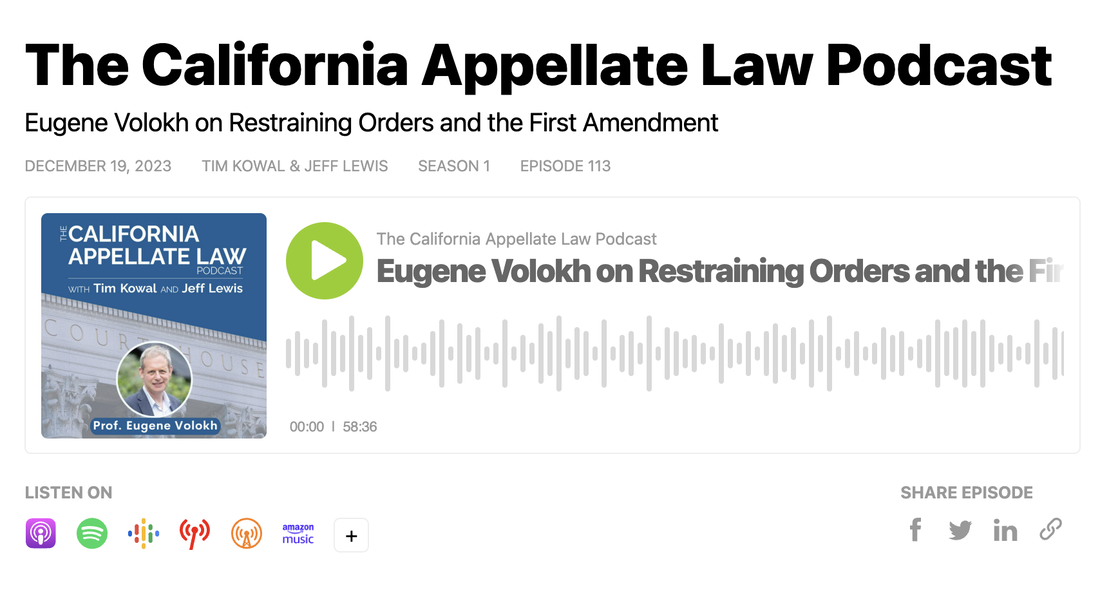
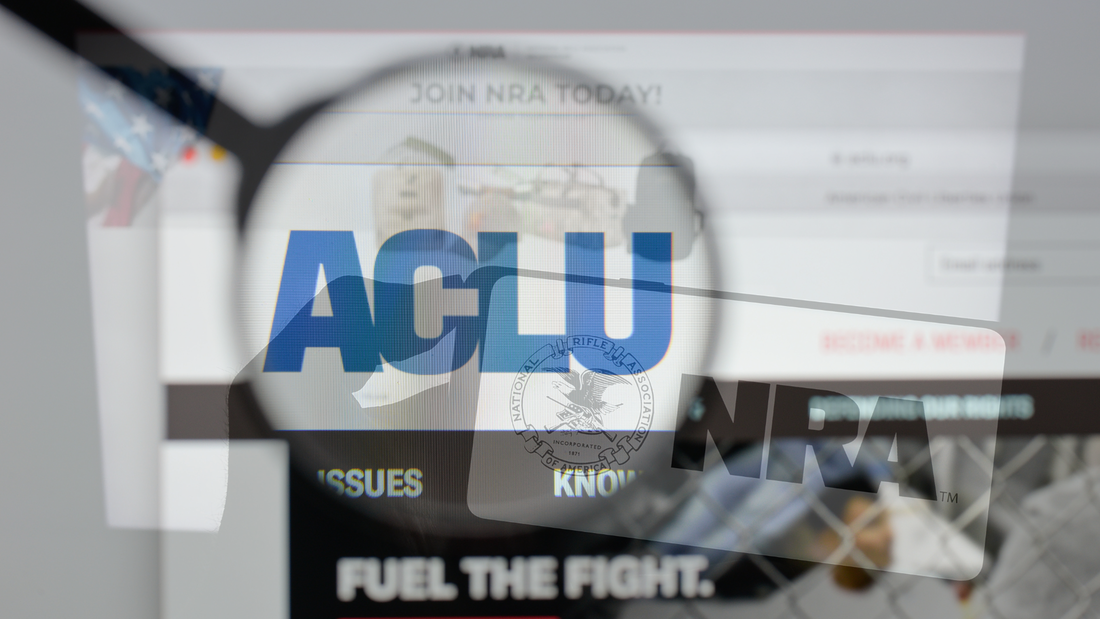

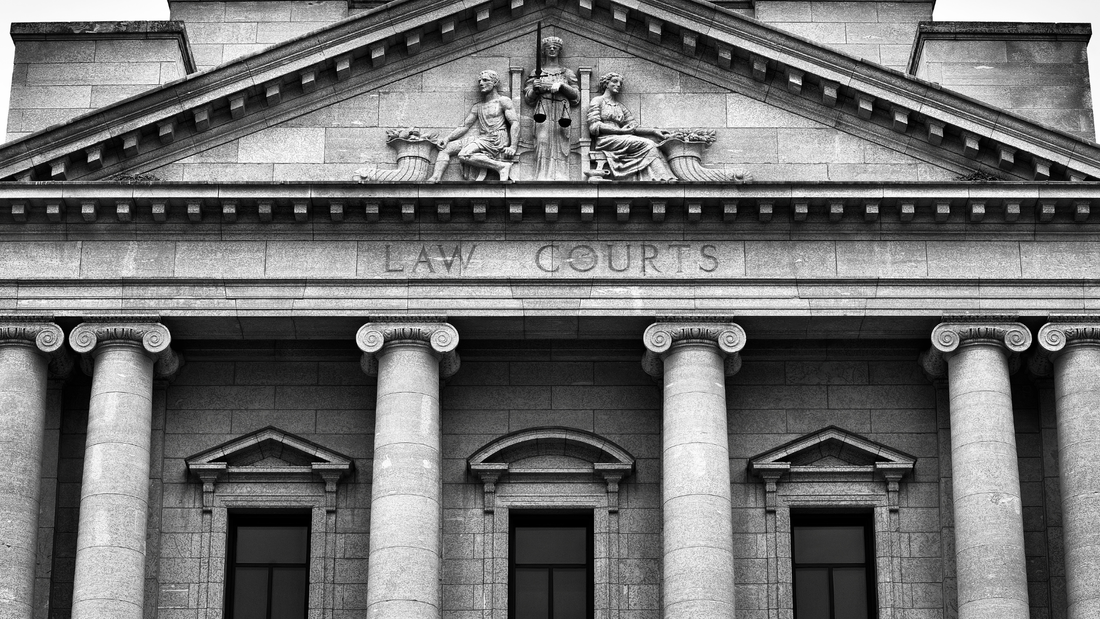
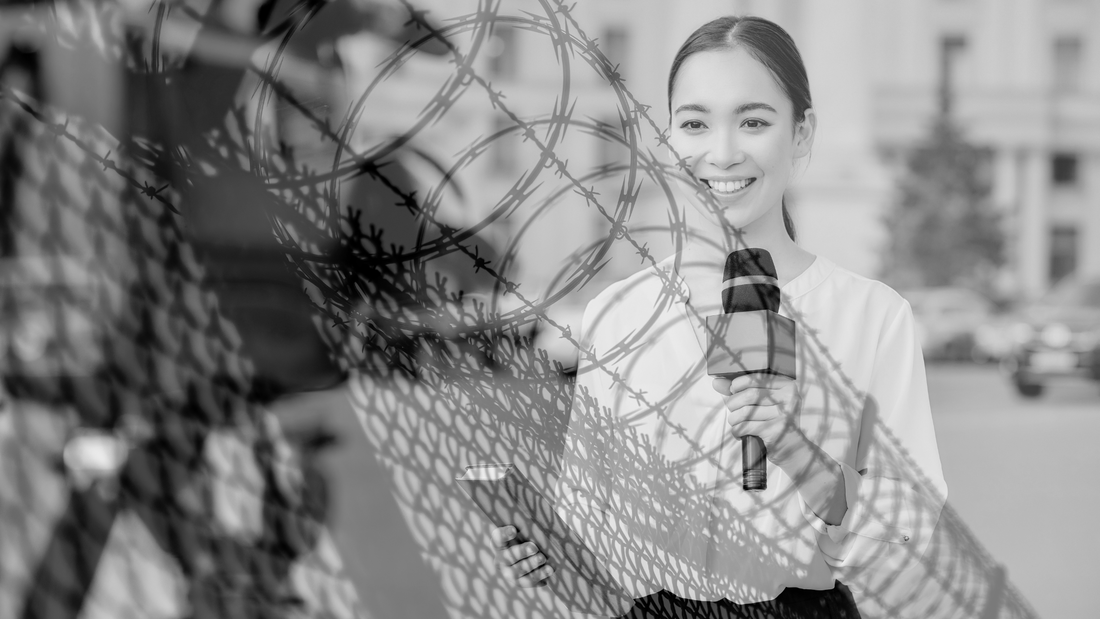
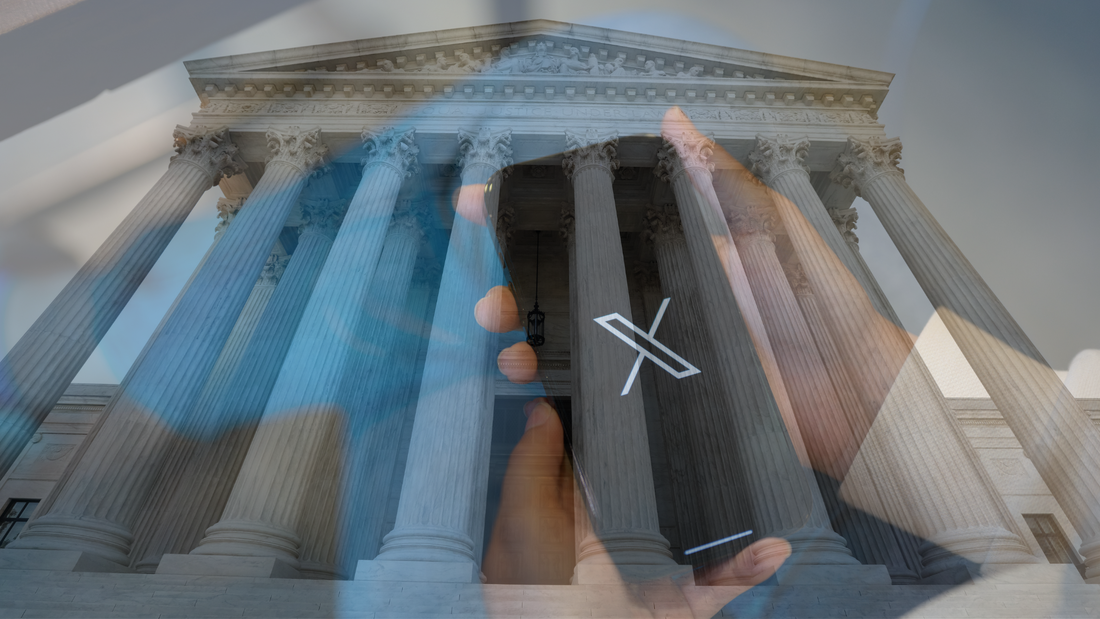
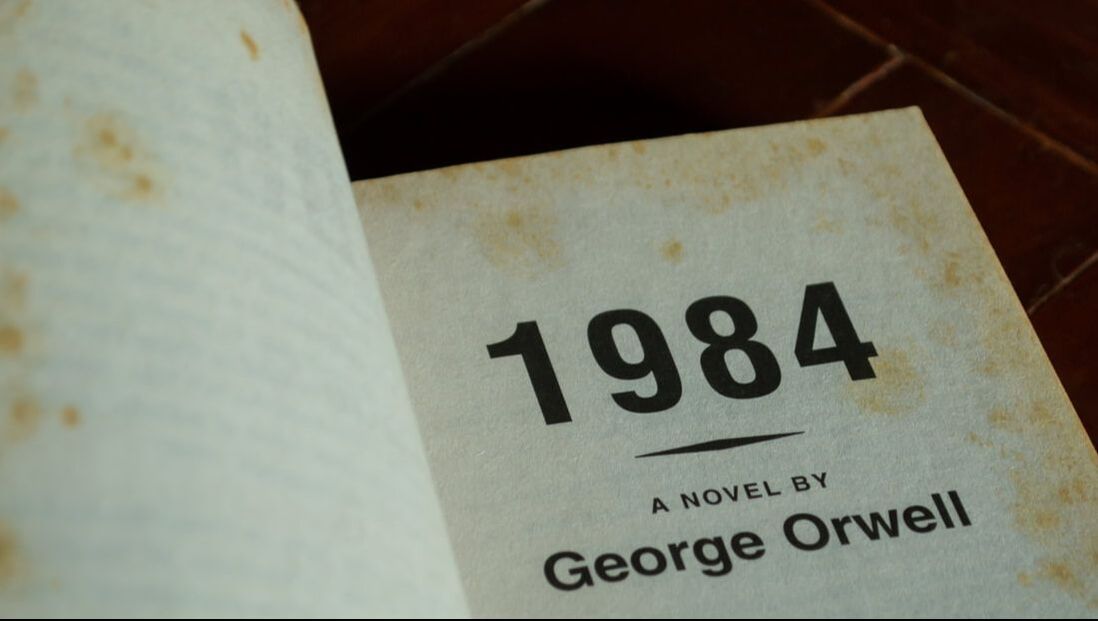
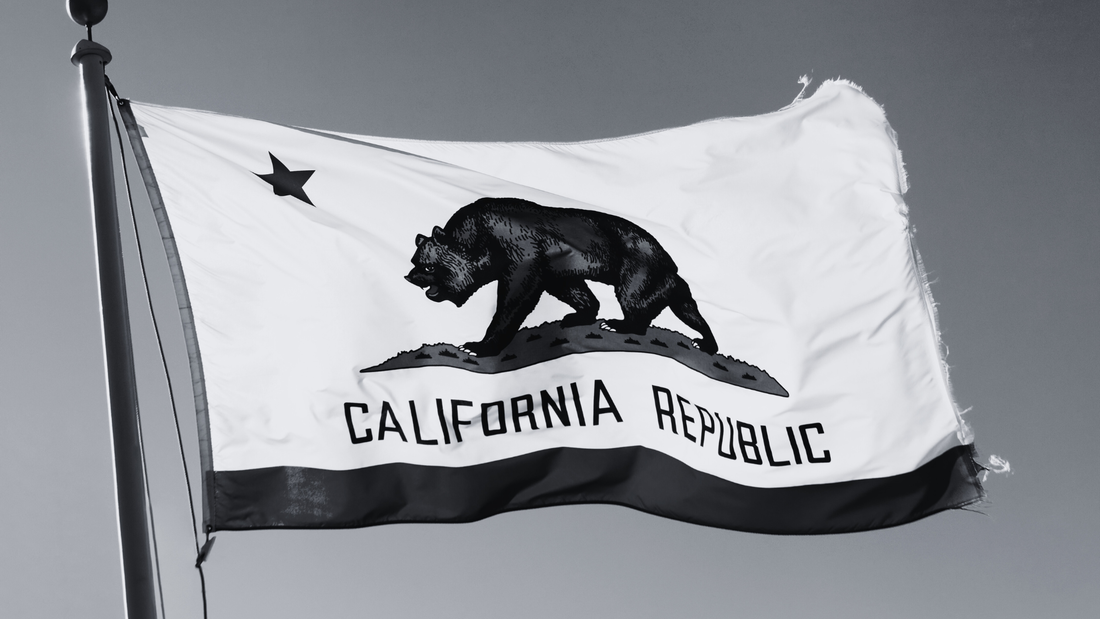

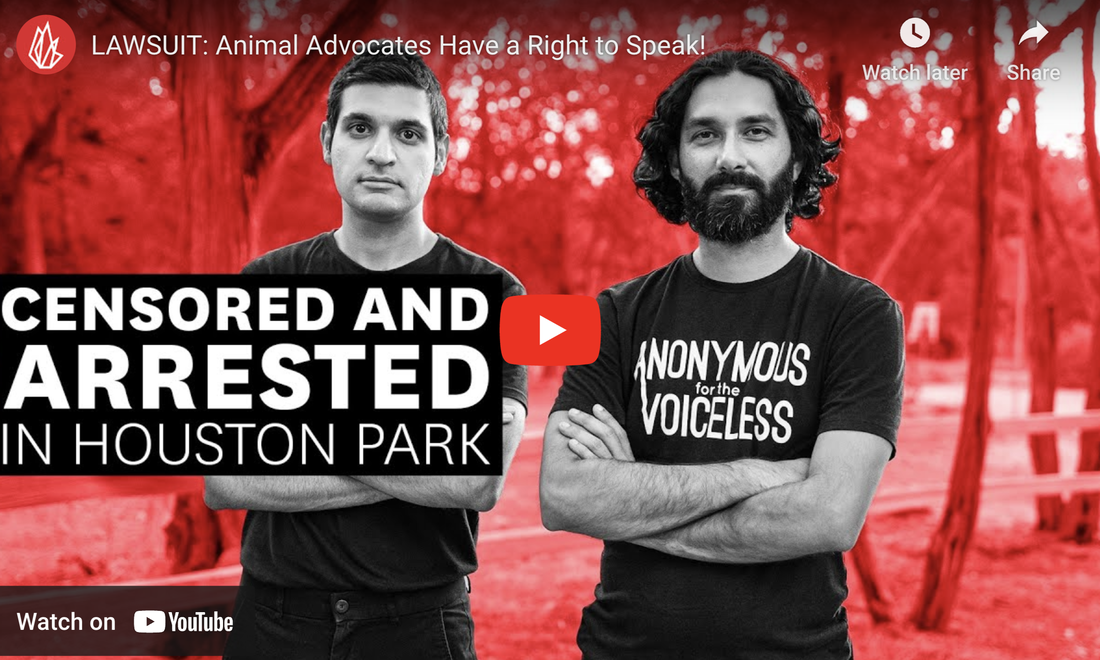



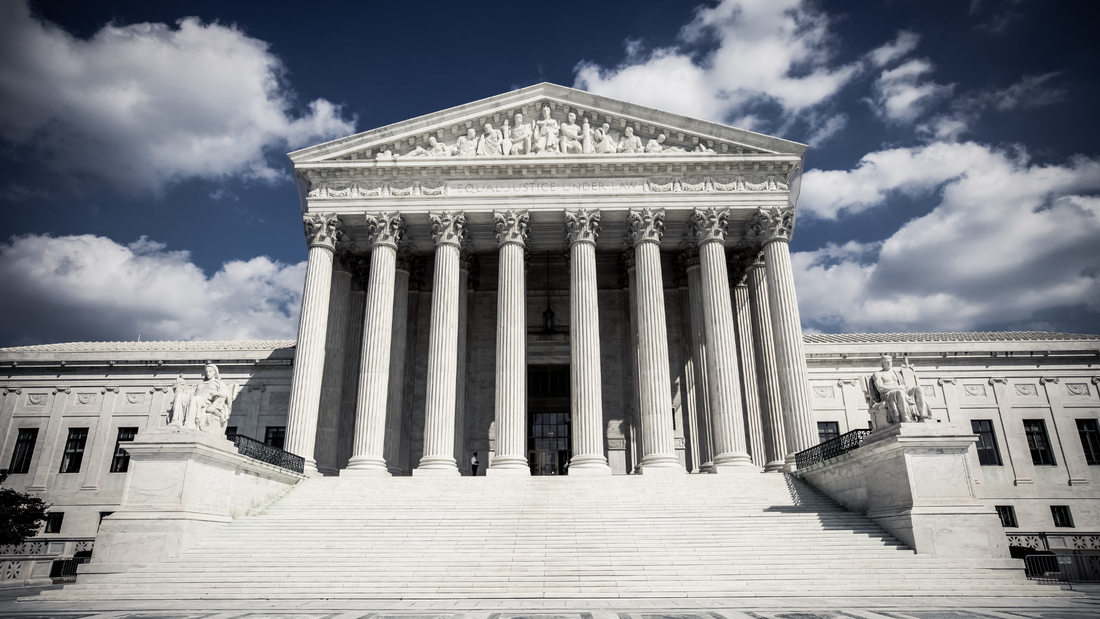


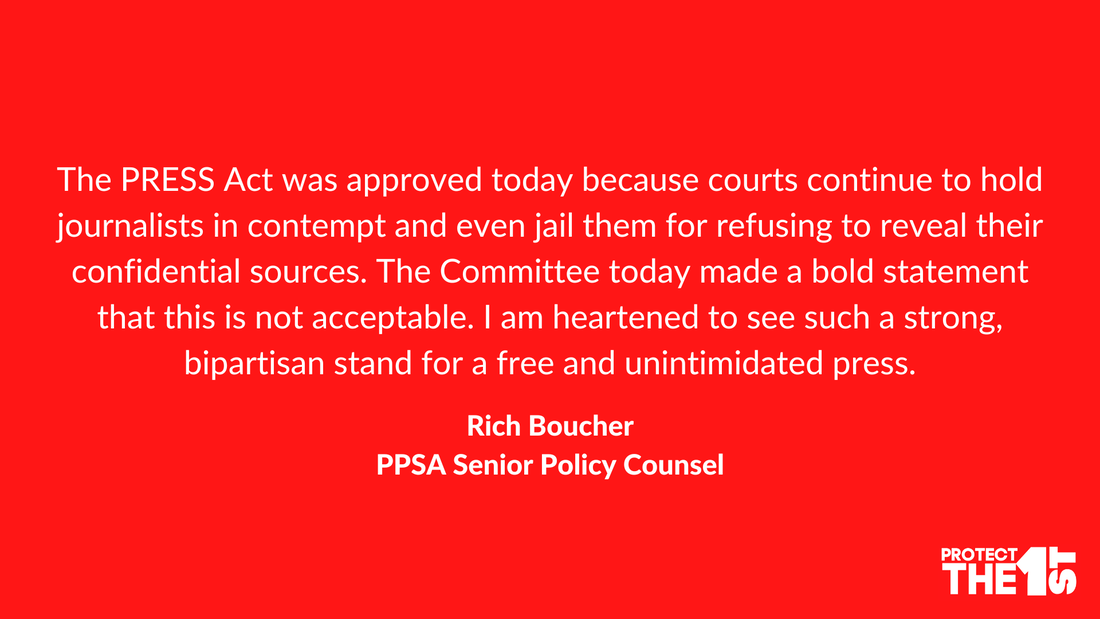

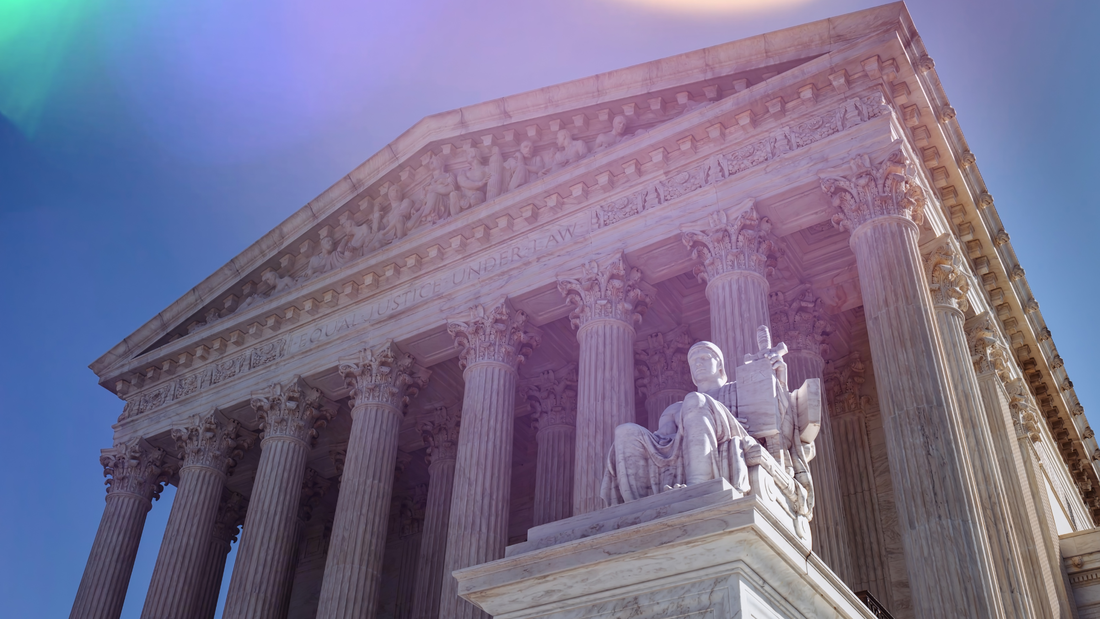


 RSS Feed
RSS Feed